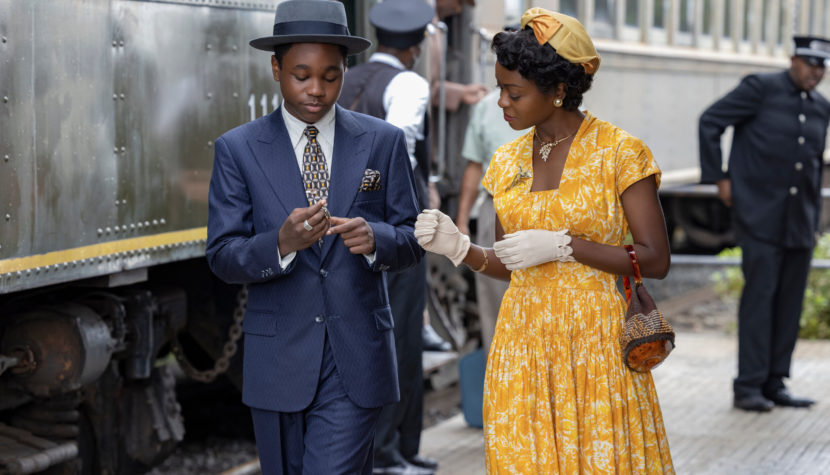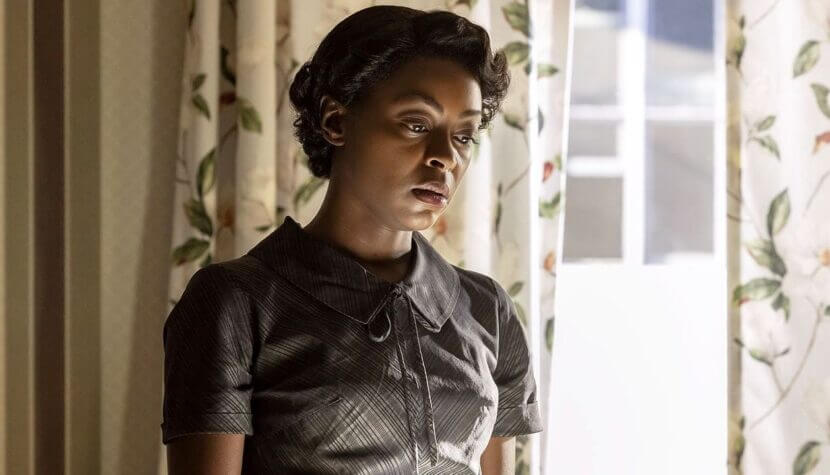TILL. In Cold Blood [REVIEW]

Dancing, singing together to a song playing on the radio, exchanging loving glances, touch expressing affection. Till’s director Chinonye Chukwu convincingly captures the unbreakable bond between Mamie (Danielle Deadwyler) and her 14-year-old son Emmett (Jalyn Hall) in several opening scenes. The boy, tenderly called Bo, spends the day with his mother in his hometown of Chicago, and the next morning leaves for a two-week vacation with his cousins in Money, a Mississippi farming town constantly torn apart by racial strife. His unconditionally loving mother warns him not to lean out, to listen to his aunt and uncle, not to move away from his cousins, to apologize, bow down, even beg for forgiveness in the event of any conflict situation. The tragic end of this trip is inevitable.
Till is a cinema containing an in-depth psychological portrait of a grieving Mamie and opening up to a much broader socio-political context. It’s 1955, but black people are still picking cotton in the fields of wealthy white owners, we hear on the news that the fight for African Americans to vote is still going on, executions are the order of the day, the justice system belongs to whites and serves only whites. It is enough for some brave soul to dream of freedom and its name will soon be entered on the list of the Ku Klux Klan. Chukwu, showing us around Money, is bright, categorical and ruthless. Thanks to this, the awkward situation becomes exceptionally clear, leading to the later brutal lynching of the teenager. One unnecessary smile, an unnecessary word is enough for an innocent misunderstanding to escalate to crime and a conflict over fundamental values.
Because of state legislation, it seems like a lost cause. The guilty will not be convicted, the trial is a cabaret set-up, after which the dust will quickly settle. For the white community, Money is just an unnecessary fuss that has no chance to upset the status quo. Chukwu also has no doubts in this field, so he transfers the dramatic weight elsewhere. He brings it out in several emotionally charged dialogues. Such is the conversation with Dr. Howard, the leader of the association fighting for equality, who demands that Mamie look at the murder of her son from a broader perspective. It’s not just about Emmett, it’s about black people in general. Justice and compensation for “only” the boy’s death is definitely not enough. Grief experienced in solitude is to be fuel for acting on behalf of entire communities. Crying is to turn into a scream, and her son into a universal symbol.

Related:
The scene where Mamie meets her son-in-law, in whose house her son lived, strikes a slightly different tone. Moses’ (John Douglas Thompson) confession – passing from shame, through denial, to fear – is an accurate diagnosis of a physically and mentally enslaved individual and a show of acting skills. In this aspect, of course, Danielle Deadwyler shines unquestionably. Internally broken, but slowly rebuilding a life shattered into pieces, hopeless but determined, tender but categorical, delicate but indestructible. Shot in one shot, her testimony in court (twitching eyelids, simultaneous resonance and suffering in the tone of her voice) has bravado and nuance. At her most important moment, Till is genuinely the best.
Chinonye Chukwu very rarely misses (the final speech to the crowd is really unnecessary), she follows Mamie step by step and believably conveys her transformation. Conservative direction, but with a staging idea for each scene. This is a cinema focused on the power of words and charismatic actors. The director illuminates the experience of mourning in an intimate setting, she also highlights the avalanche of events it causes. Despite the extremely sensitive topic, Till is not a didactic film. Fortunately, the question remains unanswered whether this is a story about times rightly past, or whether it is still a current problem.





